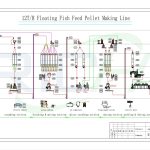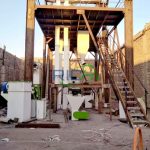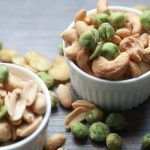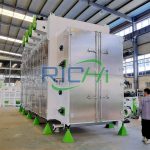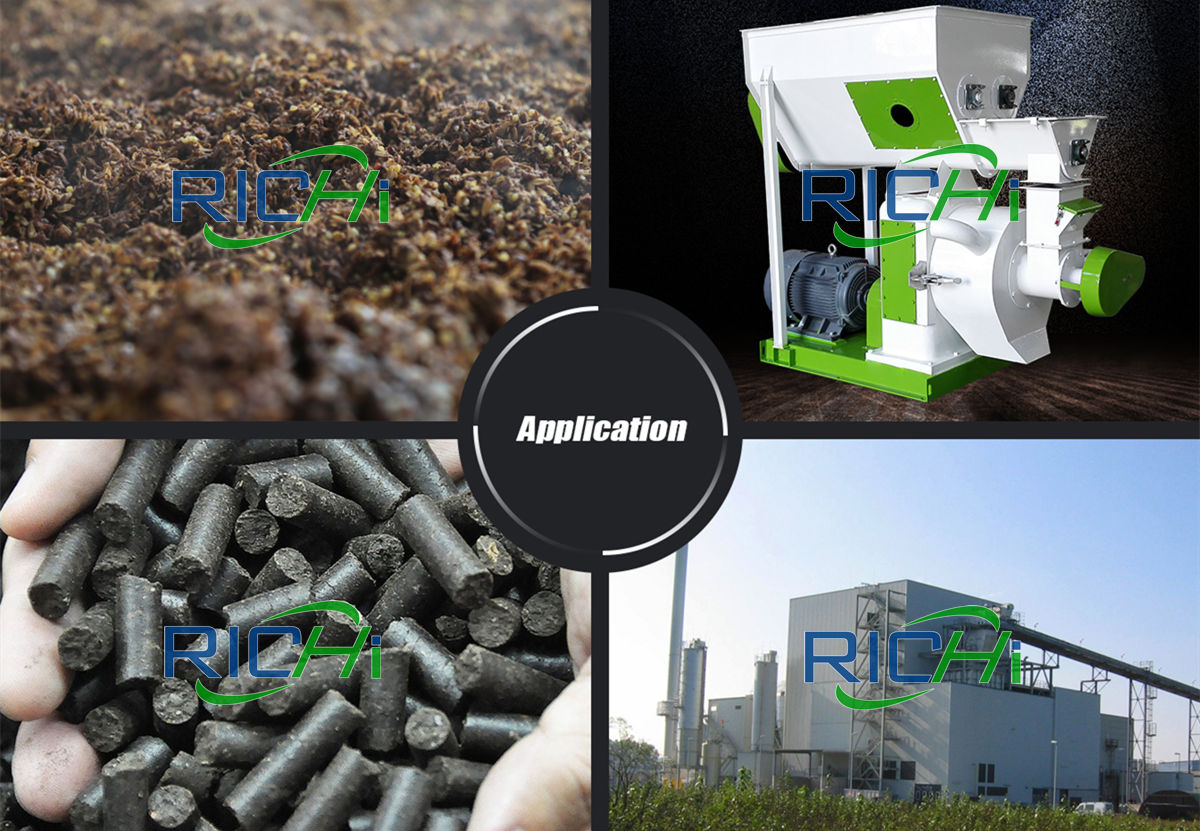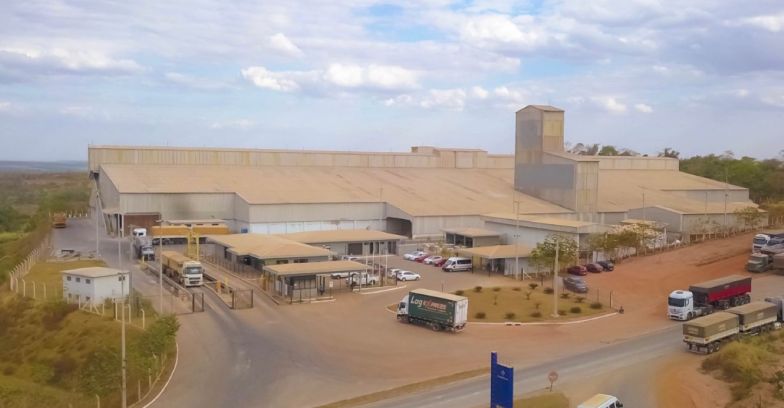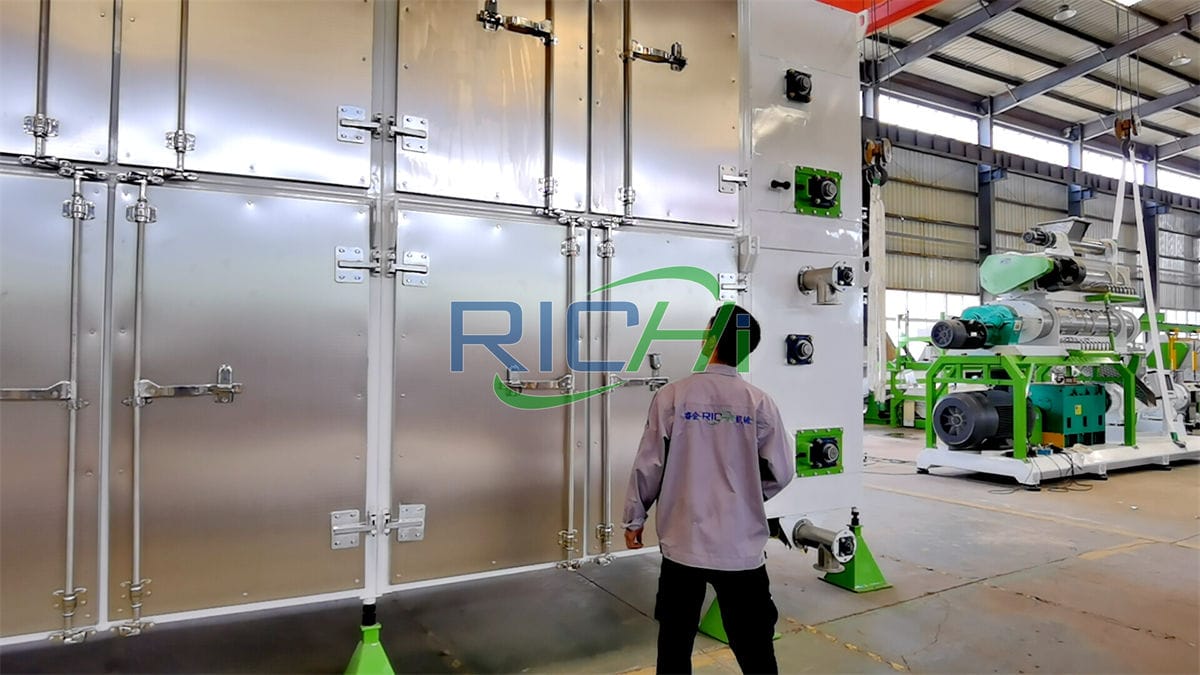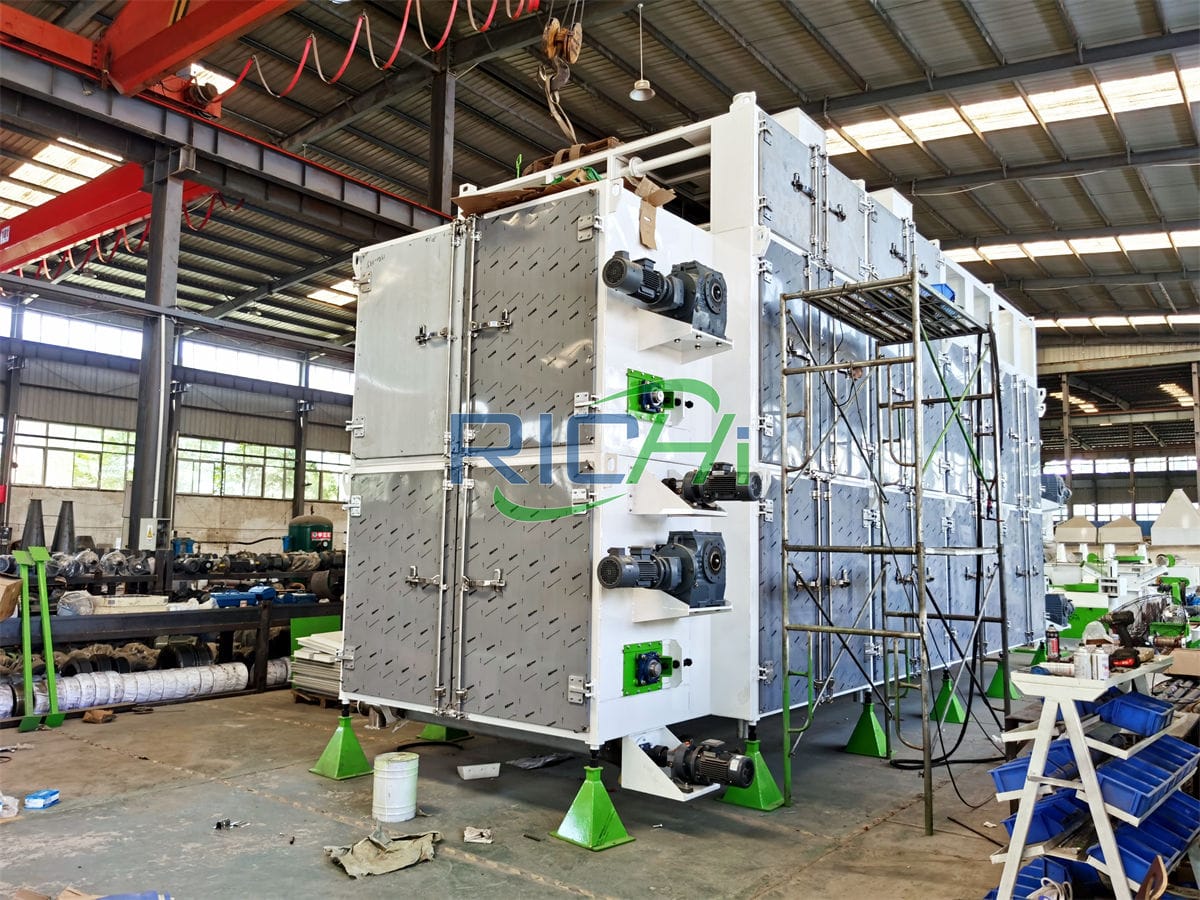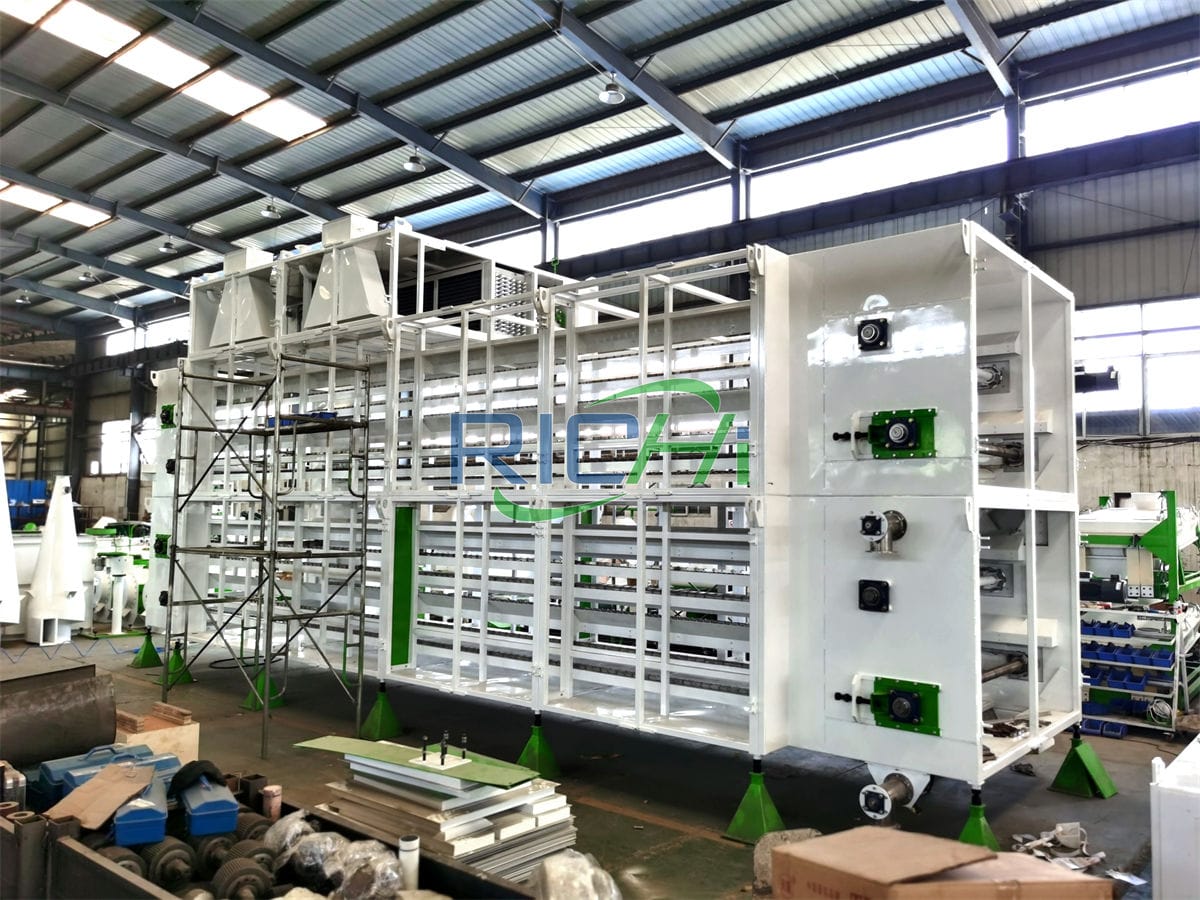1. Cost of organic fertilizer making machine production line?
How much does it cost to build an organic fertilizer pellet machine production line? In the development of modern agriculture, the support of fertilizer is indispensable! How to start a business from scratch, how much does it cost to open a small organic fertilizer factory? Is it profitable to open an organic fertilizer factory?
Due to the long-term excessive application of chemical fertilizers in recent years, it has caused soil compaction, environmental pollution. Due to severe phenomena such as the decline in the quality of agricultural products and the rapid rise in the price of chemical fertilizers in recent years, safe, environmentally friendly and green organic fertilizers have once again attracted people’s attention. Its market demand is also increasing.
The strong support of the government and changes in the market form have provided an unprecedented opportunity for the sustainable development of the organic fertilizer industry. It can be seen that the development prospect of its organic fertilizer is bright.
In recent years, the country has successively issued relevant policies to encourage the increase in the application of organic fertilizers, which has brought great development opportunities to the organic fertilizer industry.
Many countries have introduced relevant subsidy policies for the organic fertilizer industry, bringing good market expectations for the development of the industry.
How much does it cost to open a small organic fertilizer making machine production line or organic fertilizer factory? To open a small organic fertilizer making machine, the following conditions must first be met:
(1) Venue
(2) Organic fertilizer making machine
(3) Business license, tax registration certificate, organization code
(4) Fertilizer official registration certificate
Once the above conditions are met, the organic fertilizer can be formally processed and sold.
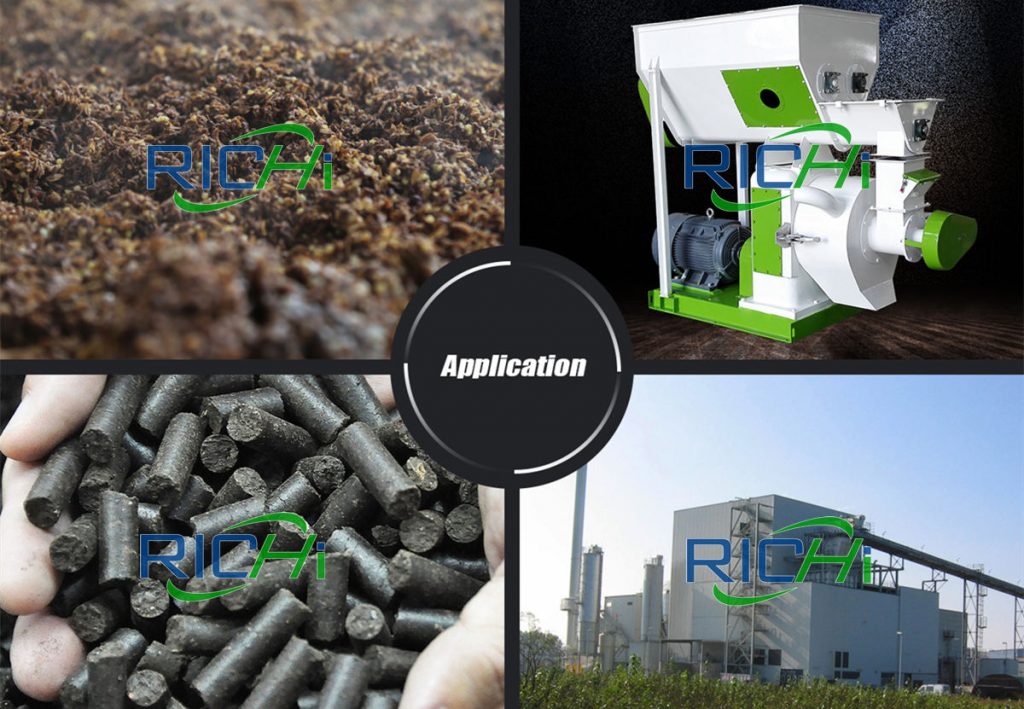
2. Chemical fertilizer vs organic fertilizer?
The use of manure is the oldest farming mode. Manure is rich in organic matter and various nutrients required by crops, which has a good effect on improving crop yield and quality and improving soil fertility. The country proposed zero growth of chemical fertilizers and livestock and poultry manure. The utilization of organic fertilizer resources has greatly improved the utilization rate of manure.
Although many farmer friends are starting to use manure and organic fertilizer made by organic fertilizer making machine, few people know that a ton of manure is applied to the field, which is equivalent to how much chemical fertilizer is applied? Today we give you some reference on this issue!
- 1 ton of human excrement is equivalent to 25-40 kg of ammonium sulfate, 13-25 kg of superphosphate, and 4-6 kg of potassium sulfate.
- 1 ton of pig manure is equivalent to 17 kg of ammonium sulfate, 21 kg of superphosphate, and 10 kg of potassium sulfate.
- 1 ton of cow dung is equivalent to 16 kg of ammonium sulfate, 16 kg of superphosphate, and 3 kg of potassium sulfate.
- 1 ton of horse manure is equivalent to 28 kg of ammonium sulfate, 19 kg of superphosphate, and 5 kg of potassium sulfate.
- 1 ton of sheep manure is equivalent to 33 kg of ammonium sulfate, 31 kg of superphosphate, and 5 kg of potassium sulfate.
- 1 ton of chicken and duck manure is equivalent to 55-82 kg of ammonium sulfate, 88-96 kg of superphosphate, and 12-17 kg of potassium sulfate.
- 1 ton of rabbit manure is equivalent to 86 kg of ammonium sulfate, 184 kg of superphosphate, and 20 kg of potassium sulfate.
- 1 ton of pig manure is equivalent to 23 kg of ammonium sulfate, 12 kg of superphosphate, and 12 kg of potassium sulfate.
- 1 ton of cattle manure is equivalent to 17 kg of ammonium sulfate, 10 kg of superphosphate, and 8 kg of potassium sulfate.
- 1 ton of ordinary compost is equivalent to 20-25 kg of ammonium sulfate, 11-16 kg of superphosphate, and 9-14 kg of potassium sulfate.
- 1 ton of old wall soil is equivalent to 9.5 kg of ammonium sulfate, 28 kg of superphosphate, and 16 kg of potassium sulfate.
- 1 ton of plant ash is equivalent to 219 kg of superphosphate and 150 kg of potassium sulfate.
- 1 ton of soybean cake is equivalent to 350 kg of ammonium sulfate, 83 kg of superphosphate, and 43 kg of potassium sulfate.
- 1 ton of peanut cake is equivalent to 316 kg of ammonium sulfate, 73 kg of superphosphate, and 27 kg of potassium sulfate.
- 1 ton of cottonseed cake is equivalent to 171 kg of ammonium sulfate, 102 kg of superphosphate, and 19 kg of potassium sulfate.
As we said above, various organic fertilizers made by organic fertilizer making machine are equal to the ratio of chemical fertilizers. Let’s talk about the content and nutrients of several commonly used organic fertilizer raw materials!
3. Development trend of organic fertilizer production line
The main function of the organic fertilizer making machine production line is to process various organic wastes in the kitchen, farmyard manure and straw into organic fertilizers through the production line, which can not only reduce environmental pollution, but also turn waste into treasure and bring additional income.
Since countries advocated the sustainable development strategy, the organic fertilizer production line has developed rapidly. Let us introduce the development trend of organic fertilizer production line in detail.
The composition of the organic fertilizer making machine production line:
The organic fertilizer production line is mainly composed of a pretreatment part and a granulation production part. Among them, the pretreatment part is also called powder organic fertilizer processing equipment, including fermentation turning and throwing machine, organic fertilizer pulverizer, drum screening machine and other equipment.
The granulation production part includes: mixing mixer, organic fertilizer pellet making machine, dryer, cooler, trommel screening machine, coating machine and automatic weighing and packaging machine.
Chickens and pigs have poor digestive ability and can only consume 25% of nutrients. The other 75% of nutrients in the feed are excreted with feces, so that the dry products contain nitrogen, phosphorus, potassium, organic matter, amino acids, protein and other ingredients. The organic fertilizer production line uses fresh chicken and pig manure as raw materials.
The fertilizer produced by organic fertilizer pellet making machine does not contain any chemical components, and is rich in a large number of beneficial substances, including various organic acids, peptides and rich nutrients such as nitrogen, phosphorus and potassium.
After the raw material is processed by the organic fertilizer making machine production line, it can not only provide comprehensive nutrition for crops, but also has a long action cycle, which can increase and renew soil organic matter, promote microbial reproduction, and improve the physical and chemical properties and biological activity of soil. It is the main nutrient for green food production. .
It not only creates economic benefits for the enterprise, but also makes great contributions to human environmental protection projects.
So what is the prospect of the organic fertilizer production line?
(1)Abundance: Biological waste, such as oil, coal, and ores, is the wealth of society. China has a vast territory and is rich in raw materials for organic fertilizer production lines. High-quality fertilizer:
Taking livestock and poultry manure and urine as an example, using the final urine discharged from a pig in a year, combined with litter, can produce 2000-2500kg of high-quality organic fertilizer, including 11-12% organic matter, 0.45% nitrogen, pentoxide Diphosphorus 0.19%, potassium oxide 0.6%, enough to meet the annual fertilizer consumption of one mu of land.
These organic fertilizers made by organic fertilizer making machine are rich in nitrogen, phosphorus, potassium and other nutrients, the content exceeds 6%, and the organic matter content exceeds 35%, which is higher than the standard.
(2) High output: an organic fertilizer production line has an annual production capacity of 30,000 tons and an annual manure processing capacity of 80,000 cubic meters.
(3) Large market demand: An organic fertilizer making machine line can not only meet the needs of local chemical fertilizers, but also meet the needs of surrounding markets. Bio-organic fertilizers are widely used in farmland, fruit trees, flowers, landscaping, lawns, soil improvement and other fields with good results.
(4) Policy support: Agricultural subsidies are very supportive for this industry, so the investment option is a good one.
With the steady development of the economy, the damage and impact of various negative factors on the environment are becoming more and more obvious. Negative factors related to economic development, such as air pollution, soil hardening, soil alkalization, and livestock and poultry manure pollution, directly affect the development of agricultural production and the improvement of people’s quality of life.
From the strategic perspective of long-term economic development, formulate economic development policies for energy conservation and environmental protection, encourage and support the development and growth of the organic fertilizer making machine production line industry, and make the national economy steadily embark on a new model and a new healthy path for energy conservation and environmental protection development.


